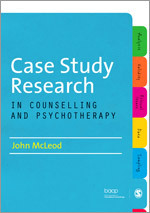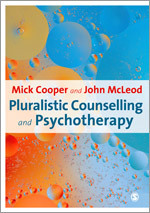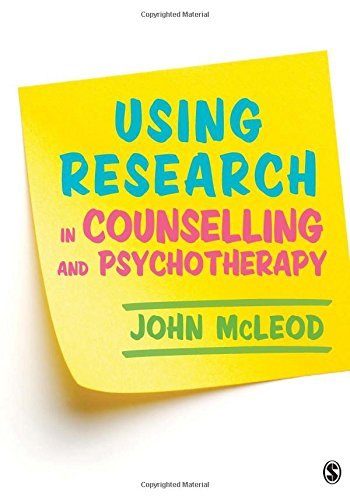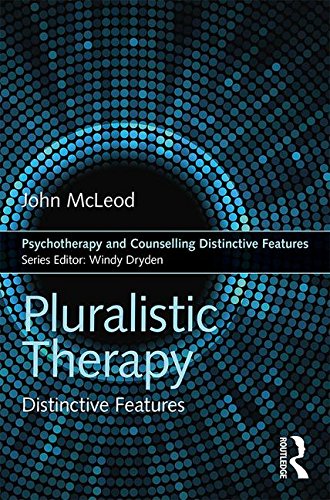When Counselling is embedded in a Wide Professional Role
There has been a massive expansion over the last few decades in the number of counselling agencies and psychotherapy clinics available to people seeking help with problems in living. Despite the growth in availability of highly-trained, specialist counsellors and psychotherapists, it is still the case, and probably will always be the case, that the majority of episodes of counselling actually take place outside of these settings. On the whole, people troubled by emotional difficulties want to talk to whoever is at hand in their life who seems reliable and competent. There is a great deal of counselling, therefore, that takes place in brief episodes, fitted in to consultations with a doctor or nurse, or in the middle of a tutorial with a college teacher. I refer to this type of counselling as embedded: the counselling role is embedded within other roles being fulfilled by the practitioner, and the counselling conversation is embedded within other professional tasks that are being carried out around it.
Embedded counselling is a harder task than counselling that is carried out within the hourly timetable of a therapy clinic. A person who makes an appointment to see a counsellor will see the counsellor for fifty minutes each week, and will be very unlikely to have any contact with the counsellor outside of that time. From the point of view of the counsellor, this is manageable: the client arrives, they talk and then the client leaves. Between sessions, the counsellor has plenty of opportunity to think, and consult colleagues, about what to do next. Compare this to the situation where an emotionally upset student turns up at their teacher's office during the morning coffee break. There are many decisions that need to be made around what can be done at that moment, and whether other moments can be found later in the day to follow up the crisis. And in fifteen minutes the teacher will be standing in front of another class, performing in teaching mode. This is just one of many challenging scenarios associated with a need to build a counselling dimension into other work roles.
The counselling profession has sought to distance itself from the domain of embedded counselling by its use of the terms such as "counselling skills" and "interpersonal skills". This has happened, I believe, because it has been in the interest of professional counsellors and psychotherapists to emphasise that what they do is special, and can only be done by people who have received lengthy training and can see their clients for hour-long sessions, unencumbered by any complicating factors. However, the battle to gain recognition for counselling as a legitimate profession and occupation has now been won, and it is time to give some serious attention to the possibilities for doing good counselling work within the delivery of other professional tasks.
In this book, I argue that it would be a good thing if teachers, nurses and other human service workers were more willing to allow themselves to respond to the emotional pain of others, and listen to their personal stories. We live in a world characterised by an all-consuming drive toward efficiency and a bureaucratic approach to people. In this kind of world, a bit of counselling is a humanising factor.
JOHN McLEOD is Professor of Counselling at the Tayside Institute for Health Studies, University of Abertay Dundee
Counselling Skill by John McLeod (281 pages, Cat. No. 25330) £19.99 Published by Open University Press
Embedded counselling is a harder task than counselling that is carried out within the hourly timetable of a therapy clinic. A person who makes an appointment to see a counsellor will see the counsellor for fifty minutes each week, and will be very unlikely to have any contact with the counsellor outside of that time. From the point of view of the counsellor, this is manageable: the client arrives, they talk and then the client leaves. Between sessions, the counsellor has plenty of opportunity to think, and consult colleagues, about what to do next. Compare this to the situation where an emotionally upset student turns up at their teacher's office during the morning coffee break. There are many decisions that need to be made around what can be done at that moment, and whether other moments can be found later in the day to follow up the crisis. And in fifteen minutes the teacher will be standing in front of another class, performing in teaching mode. This is just one of many challenging scenarios associated with a need to build a counselling dimension into other work roles.
The counselling profession has sought to distance itself from the domain of embedded counselling by its use of the terms such as "counselling skills" and "interpersonal skills". This has happened, I believe, because it has been in the interest of professional counsellors and psychotherapists to emphasise that what they do is special, and can only be done by people who have received lengthy training and can see their clients for hour-long sessions, unencumbered by any complicating factors. However, the battle to gain recognition for counselling as a legitimate profession and occupation has now been won, and it is time to give some serious attention to the possibilities for doing good counselling work within the delivery of other professional tasks.
In this book, I argue that it would be a good thing if teachers, nurses and other human service workers were more willing to allow themselves to respond to the emotional pain of others, and listen to their personal stories. We live in a world characterised by an all-consuming drive toward efficiency and a bureaucratic approach to people. In this kind of world, a bit of counselling is a humanising factor.
JOHN McLEOD is Professor of Counselling at the Tayside Institute for Health Studies, University of Abertay Dundee
Counselling Skill by John McLeod (281 pages, Cat. No. 25330) £19.99 Published by Open University Press











